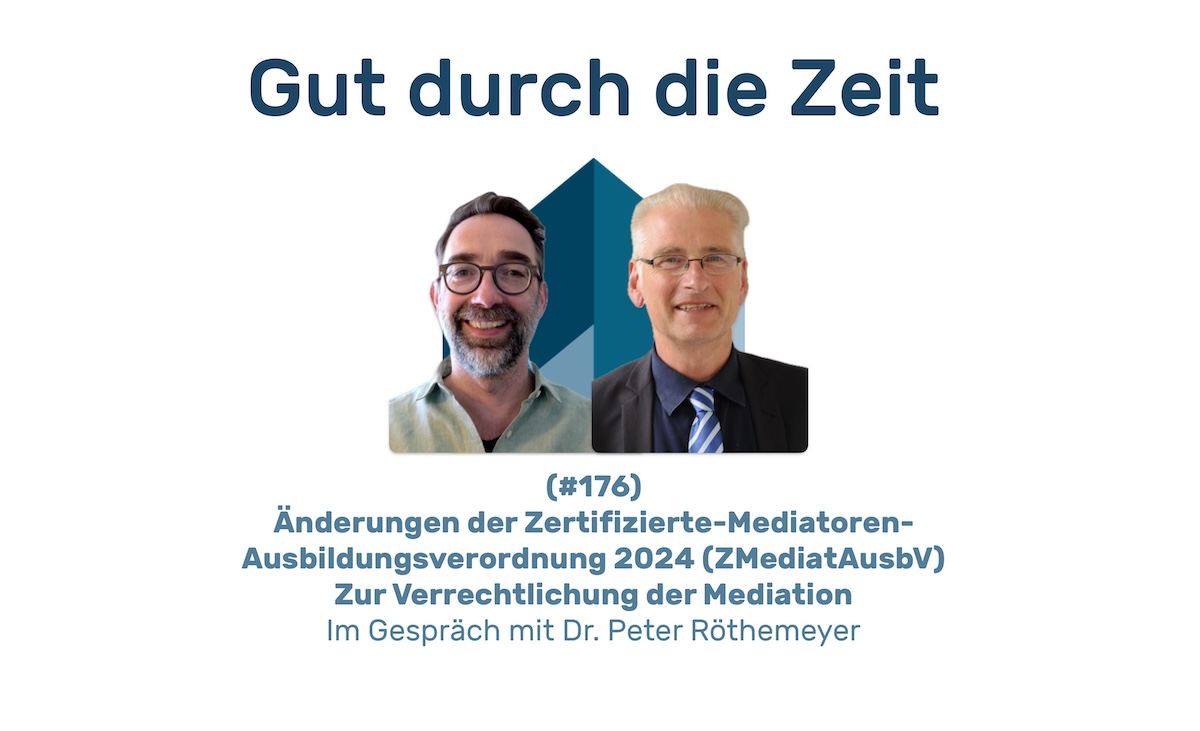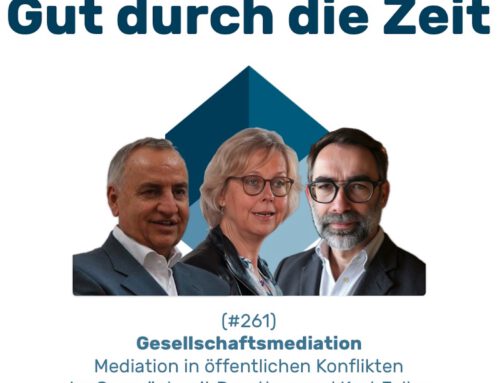INKOVEMA Podcast „Well through time“
#176 – Amendments to the Certified Mediator Training Ordinance 2024 (ZMediatAusbV)
The advantages and disadvantages of legalising mediation
In conversation with Dr Peter Röthemeyer
Well through time. The podcast about mediation, conflict coaching and organisational consulting.
Dr Peter Röthemeyer: studied law in Würzburg and Münster and economics in Münster and Hagen. From 1996 to 2021, Dr Peter Röthemeyer worked in the Lower Saxony Ministry of Justice. He trained as a mediator and was responsible for the conflict management congress www.km-kongress.de, among other things. He completed his doctorate on collective legal protection.
Dr Peter Röthemeyer is currently on the advisory board of various organisations in the field of Alternative Dispute Resolution (ADR); publishes on mediation, consumer dispute resolution and collective redress. Lecturer at the Leibniz University of Hanover and the European University Viadrina Frankfurt (Oder).
Contents:
Mediators support conflicting parties in an out-of-court dispute procedure in finding a peaceful solution to their conflict independently. In doing so, the relevant interests of both sides can be specifically safeguarded.
Since 1 September 2017, the authority to call oneself a "certified mediator" has been regulated.
The **Certified Mediator Training Ordinance** stipulates the deadlines within which certain training and further training measures such as a first practical mediation, individual supervision and further training hours must be completed before mediators are authorised to use the designation. The changes that have now been made are intended to strengthen the market's confidence in the quality of the training of certified mediators with practical experience. The inclusion of the new learning content is intended to bring the training system into the digital information age.
Since 1 September 2017, the authorisation, to be able to call themselves a "certified mediator", regulated.
The Amendment of the Certified Mediator Training Ordinance provides for selective changes to the training of mediators:
- The four practical cases and four supervision sessions that have so far followed the theoretical training course are to be brought forward and integrated into the training programme.
- The training institutes should certify participation in training that meets the requirements. The certificate is a prerequisite for a mediator to be authorised to call himself or herself "certified". The authorisation to call oneself "certified" should lapse if the further training prescribed by the ordinance is not carried out or not carried out on time.
- In addition, the regulation should explicitly regulate which part of the training programme may only be carried out in physical presence and which may also be carried out in online formats. In addition, digital competence and the ability to conduct online mediations are to be prescribed as further learning content.
- Finally, training participants should be given the freedom to choose between individual and group supervision.





Leave A Comment